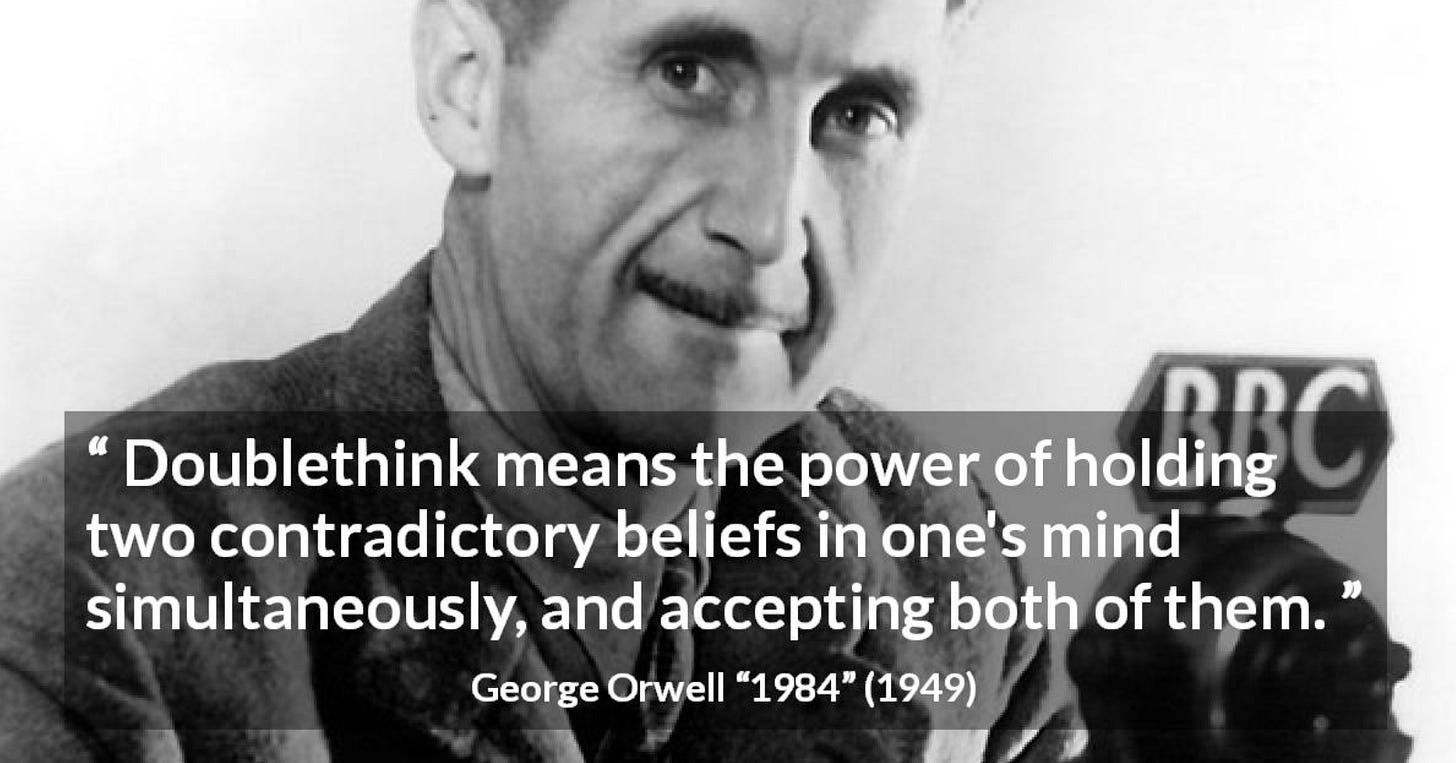It Isn’t Cognitive Dissonance. It’s Doublethink
Certum est, quia impossibile.

Cognitive dissonance is when people feel discomfort due to discrepancies in their own thoughts or beliefs. As an example, someone who takes pride in being honest, feels such discomfort when he tells a lie.
Another example of cognitive dissonance is the discomfort felt by members of a cult when they seek to explain how the end of the world was postponed, as their apocalyptic prophecy did not come true. The term was in fact coined by psychologist Leon Festinger in his studies of such cults in the 1950s.
The opposite of cognitive dissonance is doublethink, a word that first appeared in George Orwell’s 1984. Doublethink is the ability to accept two contradictory beliefs at the same time, while being totally unaware of the contradiction. In Orwell’s own words:
To know and not to know, to be conscious of complete truthfulness while telling carefully constructed lies, to hold simultaneously two opinions which cancelled out, knowing them to be contradictory and believing in both of them, to use logic against logic, to repudiate morality while laying claim to it, to believe that democracy was impossible and that the Party was the guardian of democracy, to forget whatever it was necessary to forget, then to draw it back into memory again at the moment when it was needed, and then promptly to forget it again, and above all, to apply the same process to the process itself—that was the ultimate subtlety: consciously to induce unconsciousness, and then, once again, to become unconscious of the act of hypnosis you had just performed. Even to understand the word—doublethink—involved the use of doublethink.
This morning I saw an excellent example of this on someone’s Facebook wall (translated by FB from the Icelandic, so not perfect):

…click on the above link to read the rest…